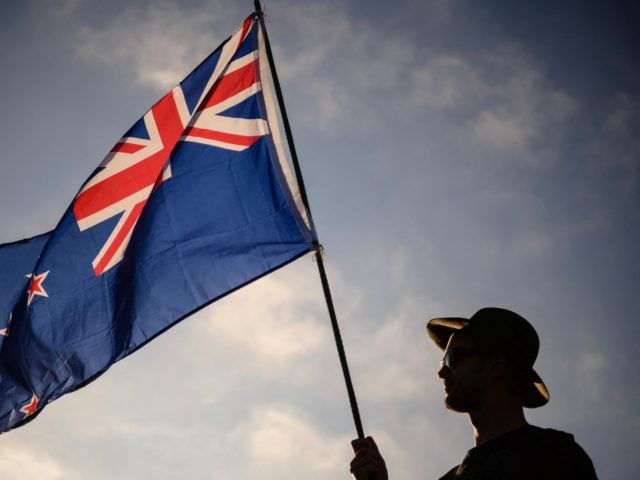The United Kingdom has reportedly made “rapid progress” in securing a post-Brexit trade deal with the British commonwealth nation of New Zealand, which would see British companies enjoy greater access to the market and cheaper food imports back to the UK.
Trade Secretary Liz Truss is set to meet with her Kiwi counterparts for a fourth and final round of negotiations this week.
The two countries have already agreed on a preliminary outline of the deal, which would cut tariffs on beef, lamb, and wine from New Zealand in return for the country purchasing more British cars, food, and gin.
“New Zealand is likely to be the next big deal we get over the line. It is neck and neck between them and Australia but there’s every chance a Kiwi deal closes first. A deal would support jobs across Britain,” a source close to Ms Truss told The Sun.
At present, imports from New Zealand are slapped with a 20 per cent tariff which had been set by the European Union. However, the newly independent UK is now free to arrange its own rates following Brexit. British brands, such as chocolate makers, tea companies, and even British made motorhomes and caravans, could all see tariffs cut in return, providing a potential boost to business in the UK.
In the 1960s, around half of New Zealand’s exports went to the UK, but the trading relationship declined after the UK joined the then-European Economic Community (the EU, as it was known) in 1973.
The hopes among British negotiators are that the trade deal would not only serve to ramp up trade between the two countries, valued at £2.9 billion as of 2019, but also to pave the way for the UK to join the Comprehensive and Progressive Agreement for Trans-Pacific Partnership (CPTPP), an 11 country, £9 trillion trade agreement.
Anglosphere Win: Former Australian PM Tony Abbott To Head UK’s Post Brexit Trade Board https://t.co/UWxoELrL9m
— Breitbart London (@BreitbartLondon) August 26, 2020
Following Brexit, the UK has been able to secure a continuity trade agreement with Canada and a trade deal with Japan. However, a key pillar of post-EU trade for Britain — a trade deal with the United States — remains elusive.
In March, Breitbart London reported that Washington insiders have signalled that the Biden administration has so de-prioritised a trade deal with the UK, that one may not be signed until at least 2022.
President Biden, who often touts his Irish heritage, has long expressed his opposition to Brexit and could be looking to make good on former President Barack Obama’s warning that the UK would go to the “back of the queue” if it voted to leave the European Union.
In contrast, former President Trump was a strident supporter of the pro-sovereignty movement and vowed to sign a massive trade deal with the UK. Yet, many accused the notionally Conservative government of Prime Minister Boris Johnson of dragging its feet and failing to secure a deal before the American election.
In May of last year, the chairman of the Bow Group, Britain’s oldest conservative think tank, Ben Harris-Quinney, told Breitbart London that the government had “for too long… de-prioritised the very generous offers the United States has been making regarding a trade deal. Those offers won’t necessarily be there indefinitely, and we should make discussing them an absolute priority.”
This sentiment was backed up by Brexit leader Nigel Farage who said in November: “The Conservatives had 4 years to do a trade with the USA and [a] pro-UK President, and they failed.”
Mr Farage also said that Biden “is keener on the relationship with Ireland than he is with us, sees Brexit as a mistake and I do not see any prospect of a free trade deal with the USA under President Joe Biden”.
Biden Sides with EU Against Britain on Northern Ireland, Backs Internal UK Borders https://t.co/TrGNoxdBKP
— Breitbart London (@BreitbartLondon) March 19, 2021
Follow Kurt Zindulka on Twitter here @KurtZindulka

COMMENTS
Please let us know if you're having issues with commenting.